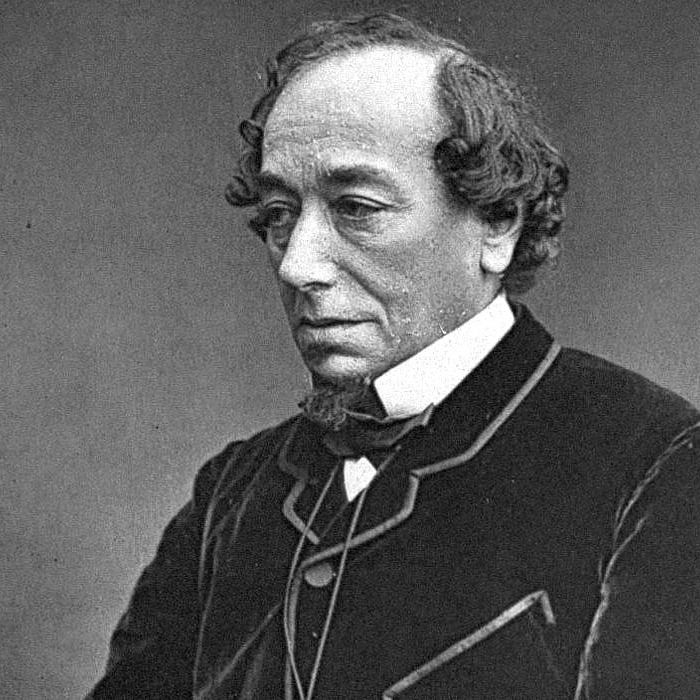Clean Living Environment: Lessons
- personal995
- May 5, 2024
- 7 min read
Updated: Nov 14, 2025
Index
Lessons
Cautionary Lessons
Purpose
Clean Living Environment: Lessons is a section of Clean Living Environment.
This page and section exists to assist you to continually learn from those who have come before us.
Many wise humans have come before us. There is no need to relive all their lessons yourself.
Introduction
No one, knows everything. We all make mistakes. We are never correct the first time, every time. What was correct yesterday, can often be wrong tomorrow. Continual learning is the only way to progress.
STRATEGY OF ONE does not have all the answers, but it can help minimise missteps. These Lessons are actions, principles, rules of thumb, cautions and cognitive frameworks you can use to help avoid traps and build momentum through each stage of life.
Continually review and take what you need. Absorb the Lessons that align with your Goals, and make them a part of your internal 'operating system'.
Each Lesson has accompanying quotes from great minds that can help us symbolise and remember the Lesson. That way we can more easily draw it from our memory as required.
The portrait that partners each quote is aimed to make you feel accountable. The individual lived, experience and made the effort to share the quote you are benefitting from. Now you can honour them by living up to it in your life and work.
Process
Review these Lessons as and when it best serves you to do so:
Review with the aim of prevention in mind. To avoid having to learn it the hard way yourself.
Review if you are stuck on a specific phase or step.
Review if you are making repetitive errors.
Review if you need inspiration and motivation.
Review if you need to review or reconstruct your Models & Theories.
Review if you are looking for inspiration for Values or Goals.
Absorb and action the Lessons.
Document the next most important Lessons for you to learn in your Action Plan.
Write them in your journal, if you journal.
Screenshot them and save them on your phone or computer background.
But most importantly, put them into action.
Whatever the Lesson you discover that you need to learn, whether positive or negative, it doesn't really matter. Again, what matters is what you do next.
Continually learn, continually improve and move forward.
Lessons
1. Holistic Approach
Recognize the interconnectedness of clean air, soil, food, and water in shaping overall health and well-being. Adopt a holistic approach that considers the impact of environmental factors on physical, mental, and emotional health.

"The environment is where we all meet; where we all have a mutual interest; it is the one thing all of us share."
Claudia Alta "Lady Bird" Johnson, First Lady of the United States (1912 - 2007)
2. Gratitude
Recognize and express gratitude if you have access to clean air, water, soil, and food, as many individuals around the world do not. Appreciate the immense value of these fundamental resources, which provide a solid foundation for health, well-being, and opportunity. Understand that access to clean environmental resources affords you a significant head start in life, enabling you to thrive and pursue your goals with vitality and resilience.

“The ovarian lottery is the most important event in which you’ll ever participate, it’s going to determine way more than what school you go to, how hard you work, all kinds of things.”
Warren Buffett, American Investor (1930 -)
3. Location Research
Conduct thorough research on potential locations to understand local air quality, soil conditions, food sources, and water sources. Consider factors such as proximity to industrial areas, agricultural practices, and water treatment facilities to assess environmental quality.

"To be prepared is half the victory."
Miguel de Cervantes, Spanish Writer (1547 - 1616)
4. Natural Surroundings
Seek out locations with abundant natural surroundings, such as parks, forests, and bodies of water, which can contribute to improved air quality, soil health, and overall well-being. Prioritize access to green spaces for recreational activities and stress reduction.

"In every walk with nature, one receives far more than he seeks."
John Muir, Scottish born American Naturalist (1838 - 1914)
5. Water Quality Testing
Conduct water quality testing for potential homes to assess the safety and purity of drinking water. Utilize water testing kits or consult with local authorities to identify potential contaminants and ensure access to clean and safe water sources.

"Water is the driving force of all nature."
Leonardo da Vinci, Italian Polymath (1452 - 1519)
6. Investigate Water Filtration
Understand the importance of water filtration for clean and safe drinking water. Investing in water filtration systems removes contaminants, enhances taste, and protects against waterborne illnesses. Prioritize installing water filtration at home or work for reliable access to clean water, promoting health and peace of mind.
"Pure water is the world’s first and foremost medicine."
Slovakian Proverb
7. Local Food Sources
Explore local food sources such as farmers' markets, community-supported agriculture (CSA) programs, and organic farms to access fresh, locally grown produce. Prioritize organic and sustainable food options to ensure clean and nutritious food choices.

"Let food be thy medicine and medicine be thy food."
Hippocrates, Classical Greek Physician (460 - 370 BCE)
8. Indoor Air Quality
Implement measures to improve indoor air quality, such as using air purifiers, maintaining ventilation systems, and minimizing indoor pollutants. Choose environmentally friendly building materials and furnishings to promote clean air indoors.

"Cleanliness and order are not matters of instinct; they are matters of education, and like most great things, you must cultivate a taste for them."
Benjamin Disraeli, English Statesmen (1804 - 1881)
9. Education and Ownership
Educate yourself and your family about environmental health risks and empower them to make informed decisions about living in a clean and healthy environment. Stay informed about environmental issues and resources available to support your efforts in maintaining a healthy home environment.

"Knowledge is power. Information is liberating. Education is the premise of progress, in every society, in every family."
Kofi Annan, Former Secretary-General of the United Nation (1938 - 2018)
10. Support Others Where You Can
Utilize your time, energy, and resources to assist others in accessing clean air, water, soil, and food, as much as your capacity allows. Advocate for environmental improvements in your community, supporting initiatives that promote sustainability and equitable access to resources. By contributing to the well-being of others and the environment, you foster a sense of collective responsibility and create a healthier, more resilient community for all.

"We rise by lifting others."
Robert Ingersoll, American Lawyer and Writer (1833 - 1899)
By reviewing these lessons above you can gain inspiration, seek clarity, deepen your awareness of where you can improve and compound your results moving forward.
Cautionary Lessons
1. Health Risks
Ignoring environmental factors such as air pollution, contaminated soil, and unsafe drinking water can pose significant health risks, leading to respiratory problems, infections, and chronic illnesses.

"The first wealth is health."
Ralph Waldo Emerson, American Philosopher (1803 - 1882)
2. Reduced Productivity
Exposure to environmental pollutants and poor-quality resources can diminish productivity and performance, hindering success in both personal and professional endeavors.

Without health, life is not life; it is only a state of langour and suffering-an image of death.
François Rabelais, French Writer (1843 - 1553)
3. Long-term Consequences
Neglecting environmental quality can result in long-term consequences for individual health and well-being, as well as for the sustainability of ecosystems and resources essential for life.

"Perhaps our greatest distinction as a species is our capacity, unique among animals, to make counter-evolutionary choices."
Jared Diamond, American Scientist and Historian (1937 - )
4. Quality of Life
Living in an environment with compromised air, soil, food, and water quality can diminish overall quality of life, leading to discomfort, stress, and diminished enjoyment of daily activities.

"Health is the soul that animates all the enjoyments of life, which fade and are tasteless without it."
Lucius Annaeus Seneca, Roman Philosopher (4BC - 65)
5. Economic Burden
Dealing with health issues and remediation efforts resulting from environmental degradation can impose a significant economic burden on individuals and communities, affecting financial stability and resources.

"An ounce of prevention is worth a pound of cure."
Benjamin Franklin, American Statesman (1706 - 1790)
6. Interconnected Risks
Neglecting one aspect of environmental quality, such as air or water pollution, can have cascading effects on other elements, amplifying risks and undermining efforts to create a healthy and sustainable living environment.

"In nature, nothing exists alone."
Rachel Carson, American Marine Biologist (1907 - 1964)
7. Psychological Impact
Living in environments with poor air quality, contaminated water, and degraded landscapes can have psychological effects, including stress, anxiety, and feelings of powerlessness, affecting mental health and well-being.

"Nature holds the key to our aesthetic, intellectual, cognitive, and even spiritual satisfaction."
E. O. Wilson, American Biologist and Naturalist (1929 - 2021
8. Loss of Resilience
Neglecting environmental resilience and adaptive capacity leaves communities vulnerable to environmental shocks and disasters, such as droughts, floods, and wildfires, with devastating impacts on livelihoods and infrastructure.
"Look after the land and it will look after you, destroy the land and it will destroy you."
Aboriginal Proverb
9. Legacy of Environmental Degradation
Neglecting environmental stewardship perpetuates a legacy of environmental degradation and resource depletion, burdening future generations with the consequences of unsustainable practices and inadequate conservation efforts.
"We do not inherit the earth from our ancestors; we borrow it from our children."
Native American Proverb
By reviewing these cautionary lessons above you can heed their warning adjust to suit, deepen your awareness of where you can improve and compound your results moving forward.
Output Checklist
Completed Strategic Review Worksheet from The Workbook for approaching any Clean Living Environment related opportunities or challenges, guided by all key learnings from this section.
Next Steps
If you feel you have key learnings to takeaway, return to Clean Living Environment: Main to integrate into your Output Checklist.
To continue to learn more, move on to Clean Living Environment: Case Studies.
< Clean Living Environment: Self Review - Previous


